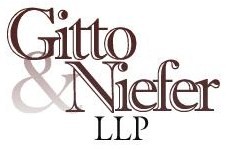From the Desk of Attorney David L. Niefer
PRACTICE TIP: While the rules of evidence governing the admissibility of surveillance evidence in a New York State workers’ compensation proceeding are liberal, the party producing surveillance evidence must have a witness ready to confirm the completeness of the evidence produced.
Previously, we discussed the fact that the individual who captured an injured worker’s activity via video did not need to testify in order for the video to be admissible. A recent ruling of the Board set forth minimum standards which must be met before rendering surveillance evidence admissible.
In Alcatel-Lucent USA, Inc., WCB G1915757 (3/7/22), the carrier presented its investigator for testimony to produce surveillance evidence in support of a finding of fraud. On review, the Board Panel found the testimony insufficient to support admission of the surveillance evidence into the record. The investigative witness was unable to “simply affirm that all relevant surveillance footage of the claimant had been, in fact, submitted via the relevant proffered DVDs, the investigator testified that he was unable to affirm such statement as he did not have occasion to review the relevant DVD prior to its submission.” Due to the investigator’s inability to affirm “the completeness of the relevant surveillance materials or the methodology of its actual creation”, the Board Panel found the evidentiary offering to be “defective on its face.”
Thus, when submitting surveillance evidence and investigative reports, make sure that all material is filed with the Board and submitted to the opposing party. Otherwise, the carrier will risk losing the benefit of its surveillance evidence. A carrier should not limit its submission to a “highlight reel.” Complete disclosure with a witness who can affirm the completeness of the evidence submitted is mandated by Alcatel-Lucent USA, Inc.
If you have any questions about this or any other issue, contact David L. Niefer at dniefer@gittolaw.com or (607) 723-0600 or any of the attorneys in our office. If you would like a training session on this or any area of the Workers’ Compensation Law, please do not hesitate to contact our firm.
This information is provided for general guidance only. This information should not be used as a substitute for consultation with legal counsel. Each case presents unique facts requiring individual analysis.




